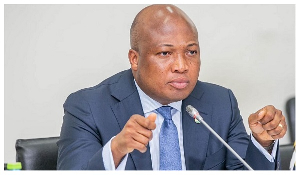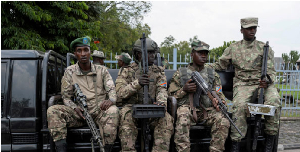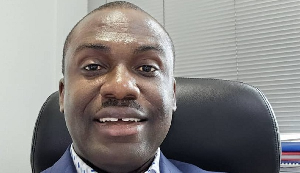In 2004, the Parliament of Ghana ratified the Ghana Meteorological Agency Act (Act 682), which established the Ghana Meteorological Agency (GMA) in replacement of the Meteorological Services Department.
Act 682 empowered the GMA to among other functions, advise the government on meteorological matters, issue weather warnings for all manner of vessels (air, sea, etc.) and provide advice for agriculture, water and disaster management. The Act also established the arrangements, including budgetary allocations, for the operations of the premier meteorological service of the country.
It has been the expectation that with passage of the Act, the new, more empowered meteorological agency, with its operational autonomy, financial assertiveness, and clarity of focus would deliver better service to the country.
Regrettably, inadequate financing arrangements still continue to confront the GMA, as was attested by the Director-General of the Agency last year when he said that the Agency needed about US$3 million to purchase two advanced Doppler Radar to detect cloud movement to predict rainfall pattern in detail. As was stated by the Director-General “in the absence of the radar, the agency is using satellite imagery to predict rainfall pattern… The Doppler would help assess existing weather patterns every 15 minutes rather than providing long-term forecasts.”
Foreknowledge of the weather, whether short or long range, is critical to the success of many sectors of our nation. For instance, expected good rainfalls could lead to better farming practices with positive impacts redounding on inflation and the economy generally. Equally, expectations of dry, hot weather could lead to better planning for the generation and distribution of energy supplies in anticipation of higher usage of air conditioners, etc. Information on the weather is also good for commercial entities as it enables weather-conditioned products such as air conditioners, umbrellas, etc to be stocked for peak demand periods. The weather is thus one clear area where knowledge can translate into power – actions that yield fruitful results.
Therefore, the financing challenges aside, it can certainly be well argued that there are improvements that the Agency could provide to the stakeholder community, including the Ghanaian public of which I am a legitimate member, to enable us better improve our decisions and actions.
In this brief write-up I focus only on two.
First is the delivery of short-range weather-related information to the general public. I have for many years watched with great apprehension the weathermen, now women, of the GMA who partner with GTV for the weather segment of the news. The delivery is heavy and unnecessarily technical.
My suggestion is that the television delivery should be provided in a lighter and user-friendly manner. Also, I recommend that the degree of humidity expected to prevail in different parts of the country should be included, as its intensity changes the perceived heat or otherwise. Additionally, pro bono service through the daily papers should be implemented. I would further recommend that in these times of increased interaction in the West Africa region, the television weather service should provide information on weather conditions in key West African countries such as Togo, Benin, Nigeria, Cote d’Ivoire and Burkina Faso, among others.
Second, is the delivery of long-range weather-related information to farmers who are beneficiaries in the agriculture sector. In these times of erratic weather patterns, any aid to farmers in establishing some predictability with rainfall and other weather patterns is helpful. Knowing when to plant and when to harvest is key to success in farming, and it would be important for farmers to have knowledge of such matters in a timely manner.
With the prevalence of simple technologies such as mobile phones, and the abatement of traditional extension services by the Ministry of Food and Agriculture, innovative means such as the transmission of SMS to registered farmers on weather related information would seem an appropriate means to disseminate weather and other farming extension advice. In countries such as the United States where weather channels exist, dissemination is much easier. A technical meeting between the GMA, MOFA and the telecom companies would appear to be in order to draw up modalities for such a service.
Before concluding this piece, I would want to reiterate the urgency in equipping and modernising the Ghana Meteorological Agency to enable it deliver its short range and long range weather advice. The funding necessary for their work has to be raised, but even as that is done, innovative means of delivering weather service should be done, for, indeed, the importance of weather services to sectors such as agriculture, transportation, energy etc. is not in doubt.
Even as the weather remains cloudy, we predict clear skies in the days ahead.
Harold Agyeman Antoa, A/R
Opinions of Sunday, 30 May 2010
Columnist: Agyeman, Harold














